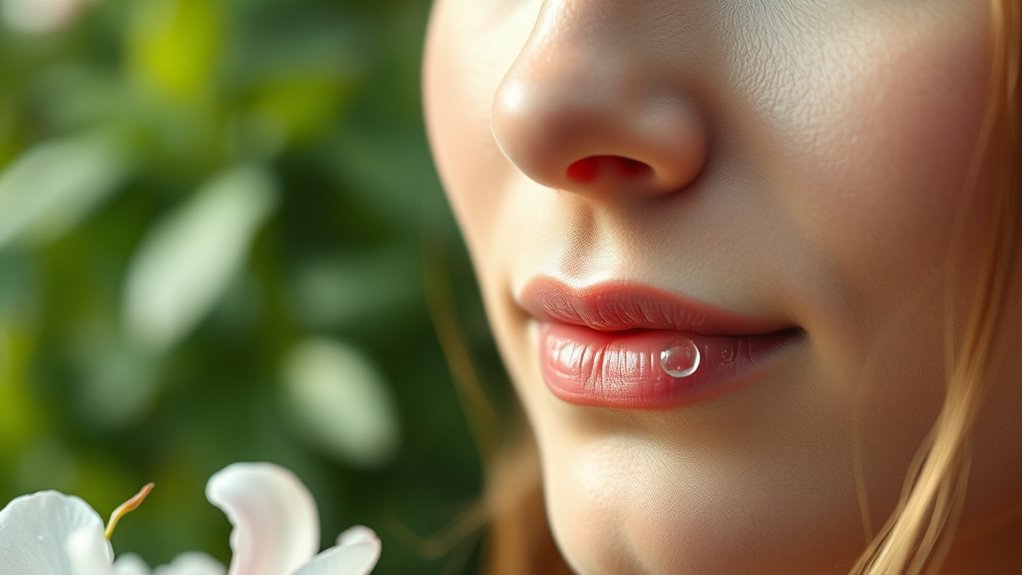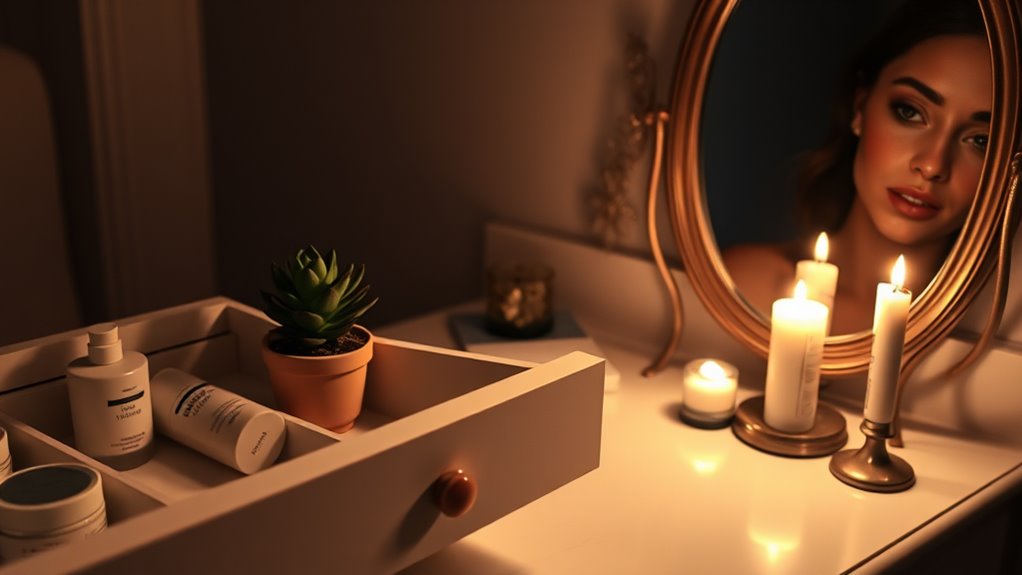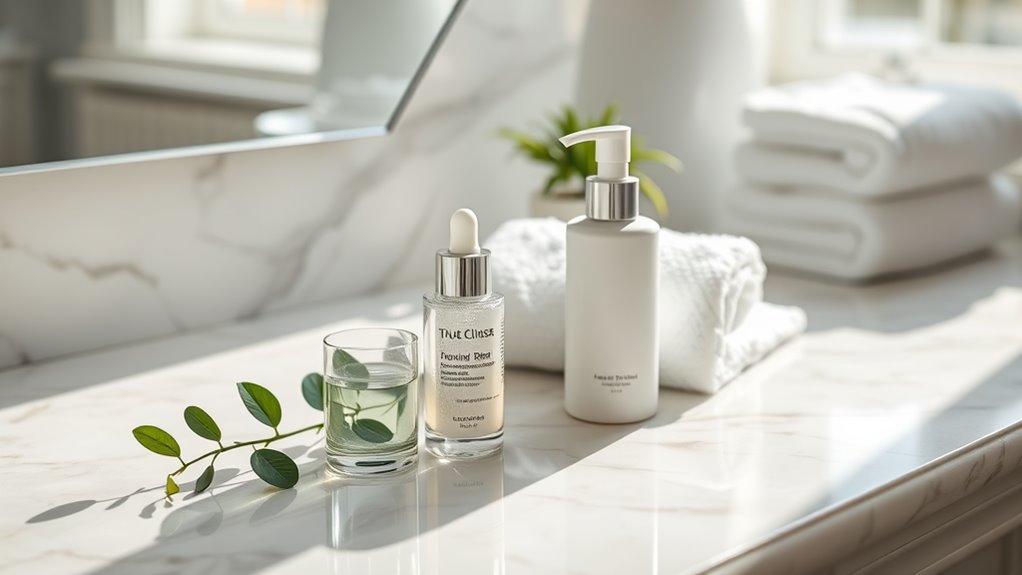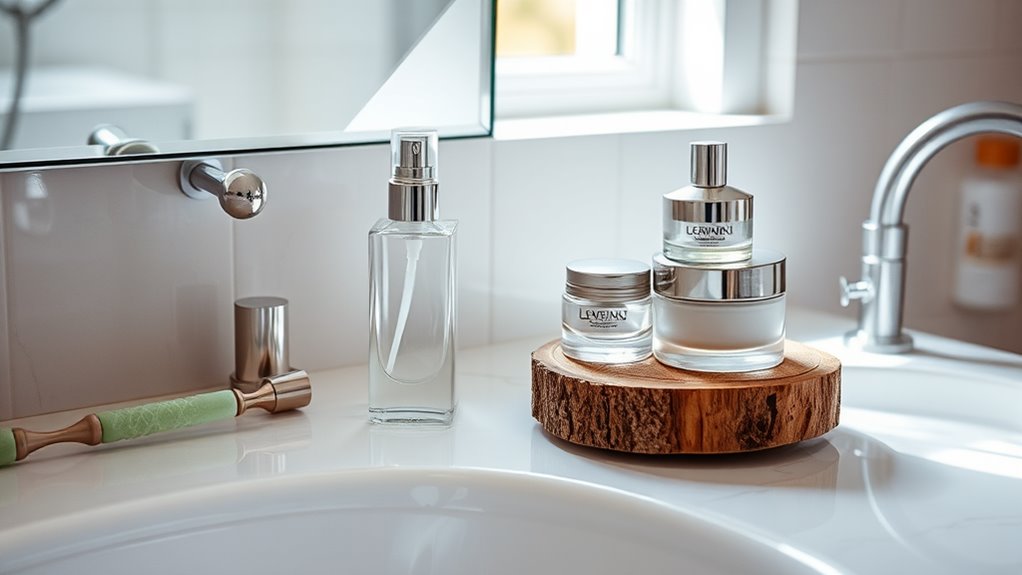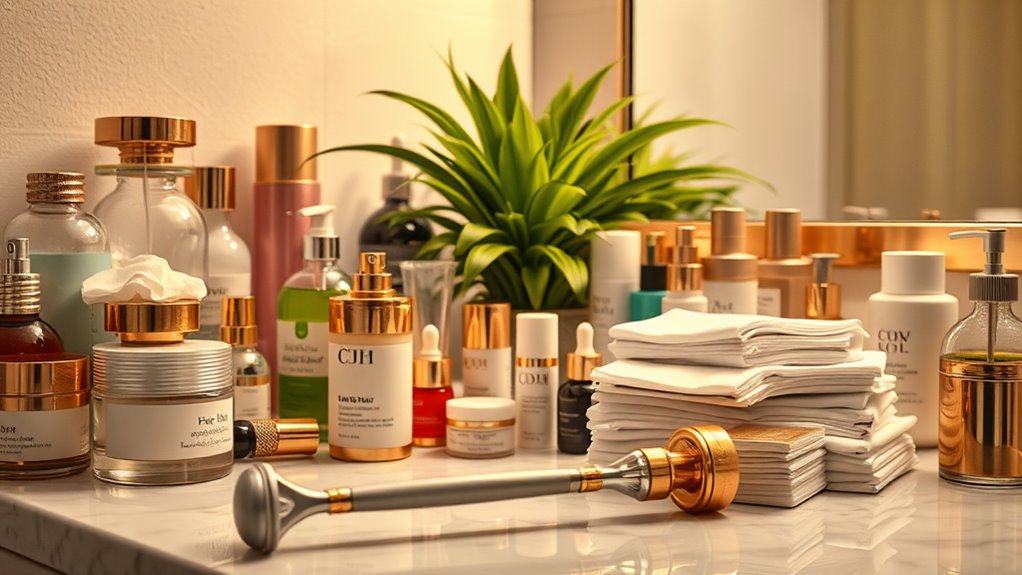Clear Skin Secrets Dermatologists Won’t Tell You!
When it comes to achieving clear skin, many dermatologists focus on treatments and products, but there are essential habits you might be missing. Hydration, diet, stress management, and sleep play crucial roles in your skin’s health. By understanding how these factors influence your complexion, you can unlock the secrets to radiant skin. Curious about which specific foods and practices can make a difference?
The Power of Hydration: Why Water Matters More Than You Think
Have you ever wondered how much water impacts your skin’s health? Staying hydrated is crucial for maintaining clear skin.
Water helps to flush out toxins, keeping your complexion fresh and vibrant.
When you’re well-hydrated, your skin retains elasticity and appears plump, reducing the appearance of fine lines.
To incorporate this clear skin tip, aim for at least eight glasses of water daily, adjusting based on your activity level.
Remember, hydration can also minimize dryness and irritation, enhancing your skin’s natural barrier. Additionally, during winter months, consider using a non-greasy moisturizer to lock in hydration and protect your skin from harsh weather conditions.
Prioritize water intake in your routine, and you’ll likely notice a positive difference in your skin’s overall appearance.
The Role of Diet: Foods That Promote Clear Skin
What if the secret to clearer skin lies on your plate? Your diet plays a crucial role in skin health. Foods rich in antioxidants, healthy fats, and vitamins can help reduce inflammation and promote a radiant complexion. Consider incorporating these skin-friendly options:
| Food | Benefits | How to Enjoy |
|---|---|---|
| Avocado | Rich in healthy fats | In salads or smoothies |
| Blueberries | High in antioxidants | As a snack or topping |
| Spinach | Packed with vitamins A & C | In salads or sautéed |
Many people are unaware that certain foods can trigger acne, making it essential to understand dietary choices that promote clear skin.
Stress Management Techniques for a Brighter Complexion
Stress triggers the release of cortisol, which can lead to increased oil production and acne. To combat this, incorporate stress management techniques into your routine. Mindfulness practices, such as meditation and deep breathing, can help reduce anxiety and promote skin health. Regular physical activity boosts endorphins, improving your mood and circulation, which benefits your complexion. Additionally, engaging in hobbies you love can provide a much-needed mental break. Prioritizing these methods not only enhances your emotional well-being but also paves the way for clearer, brighter skin. Embrace stress management for lasting skin benefits! Furthermore, maintaining a consistent skincare routine can also help mitigate stress-induced acne and improve overall skin health.
Sleep Secrets: How Rest Affects Your Skin Health
Clear Skin Secrets Dermatologists Won’t Tell You!
Sleep Secrets: How Rest Affects Your Skin Health
Ever wondered why your skin looks dull after a night of poor sleep? Quality rest is essential for skin health. During sleep, your body repairs and regenerates skin cells, promoting a radiant complexion. Lack of sleep can increase cortisol levels, leading to inflammation and breakouts. Additionally, inadequate sleep can accelerate skin aging, making it crucial to prioritize your rest.
| Impact of Sleep on Skin Health | Description |
|---|---|
| Cell Regeneration | Skin repairs itself during deep sleep. |
| Reduced Inflammation | Rest lowers cortisol, preventing irritation. |
| Enhanced Hydration | Sleep supports moisture retention in skin. |
| Improved Elasticity | Adequate sleep boosts collagen production. |
| Balanced Skin Tone | Rest promotes even skin pigmentation. |
Prioritize sleep for healthier skin!

